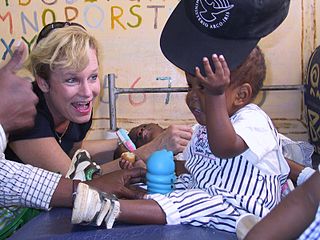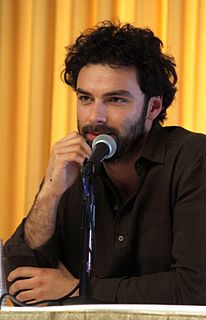A Quote by Stephen Sondheim
In not-for-profit theater, you don't worry so much about how the audience is going to react. You want to make them absorb the piece.
Related Quotes
Make sure you comfort everybody, because you have so much power. The influence you do have, make sure you use that for the right things that's going to propel you, and propel your company. It's not always about making profit. I know y'all know how to make profit, and I know that's what it's about! But I'm very happy that I can come here and tell you I'm someone that has not been driven by the profit. You can succeed with the people.
You're in a movie, so you have to think about how something plays. It's not like you're thinking about how an audience is going to react. You're trying to present the story. You're trying to illuminate the lives of these people in the story. So I'm thinking about how my behavior as this character best illuminates what's going on with them in this moment in time. I always say it's sort of the director's job. People think that the directors direct actors. No. Really, what the director's doing is directing the audience's eye through the film.
I have a children's theater background, so I grew up performing for child audiences; it's sort of my specialty. I know the child audience pretty well - or felt like I did because I performed for them so much. I studied a lot about the child audience, about theater. So it was naturally a place that I gravitated to.
God wants your ministry to flow from the realization that you are a beloved child of God. In that place you don’t worry too much about how people see you. You don’t worry too much about whether they’re nice or mean. You don’t even worry about whether they love you or hate you. You don’t worry because you’re simply going to love them and love Him. This comes from knowing who He is and what He thinks of you. This is what it means to grasp you are a child of God.
In a way, the songs are written to be performed. I put them on records, but I'm always thinking about how an audience would react to it. I realized at age 7 that I wanted to be a performer, and I used to do that, and occasionally I'll get an acting job. I don't really make much of a living as an actor, but it's fun to do it when I get a job.
I think one of the things that is important, for me, though a lot of people would disagree with me, is that you be founded in theater so that you understand what an audience is, what kind of an animal it is and how to play with it. How to have fun with it, how to sympathize with it, all the things that an audience is. I don't think you're going to find that out unless you do theater.
I just really care about what people see. I want them to know that I'm working hard for this. The artists that I look up to like, you know, Michael, Prince, James Brown. You watch them and you understand that they're paying attention to the details of their art. And they care so much about what they're wearing, about how they're moving, about how they're making the audience feel. They're not phoning it in. They're going up there to murder anybody that performs after them or performs before them. That's what I've watched my whole life and admired.
If I have ideas, I want to put them in the movie. It's not a minimalist approach at all but I feel like it's for the audience. It's about seeing how much texture we can give it and seeing how many things are there for people to latch on to... I just want to do it the way I want and I feel like it won't be helpful for me if I start worrying about that. I just have to follow my instincts. Everyone is going to respond differently to it and everybody's right - that's their point of view. That's how the story intersects with their lives.









































